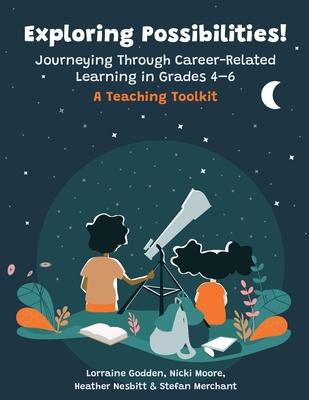Career development is a lifelong process that begins in the early years. In elementary school, engaging in career conversations is not about getting children to make decisions about what job they will have in the future. Rather, it is a time when we ask our young learners to begin the process of investigating themselves, find out more about their interests and aptitudes, and consider what type of life they feel they might want to lead. This means thinking about questions like: what do I like to do most? what do I think I am good at? and how can I best help others?
This is why we should be thinking about career in elementary schools, especially when we acknowledge that young children are developing skills and experiences that build their capacity for successful learning and positive, harmonious career and life outcomes. Nevertheless, many elementary school teachers may not be fully aware of how their day-to-day teaching activities connects to their important role in developing these critical career-related skills and attributes with their students. Consequently, this teaching toolkit helps to shine a light on the value and many ways of undertaking career-related learning in elementary schools.
This teaching toolkit is rooted in the belief in public education as a public good and in the instrumental role of elementary education in helping children "discover their passions and aspirations, develop their potential, and find their place in society." This toolkit is also underpinned by published literature and data collected from educators who were asked to shed light on how they approach the development of foundational skills in their practice and parents, students, and industry partners who were asked to share their perceptions of and what they know about career-related learning in Canadian elementary schools.
The aim of the toolkit is to help all educators understand and showcase the various ways that their teaching practices introduce and develop foundational career-related skills, such as healthy habits of mind and being, social and emotional skills, self-confidence, and self-efficacy. The hope is that this teaching toolkit will inspire and stimulate educators to go on a journey to explore the possibilities with career-related teaching and learning for children in grades 4-6 (typically ages 9-12).
The toolkit is authored by an international project team from Canada and the UK led by Dr. Lorraine Godden, Senior Partner, Ironwood Consulting and Consultant and Instructor II at Carleton University; Nicki Moore, Senior Researcher iCeGS, University of Derby; Dr. Heather Nesbitt, Consultant and Adjunct Assistant Professor at Queen's University; and Dr. Stefan Merchant, Consultant and Adjunct Assistant Professor at Queen's University.
